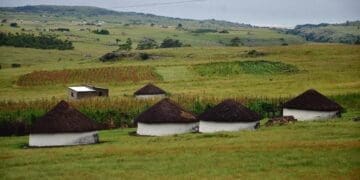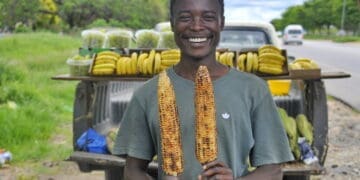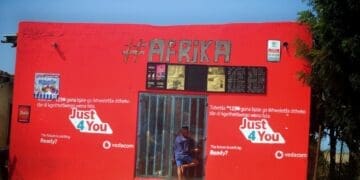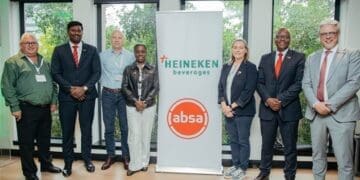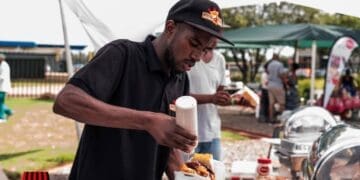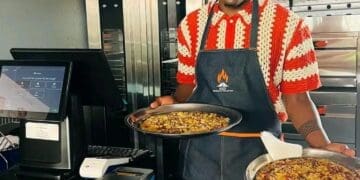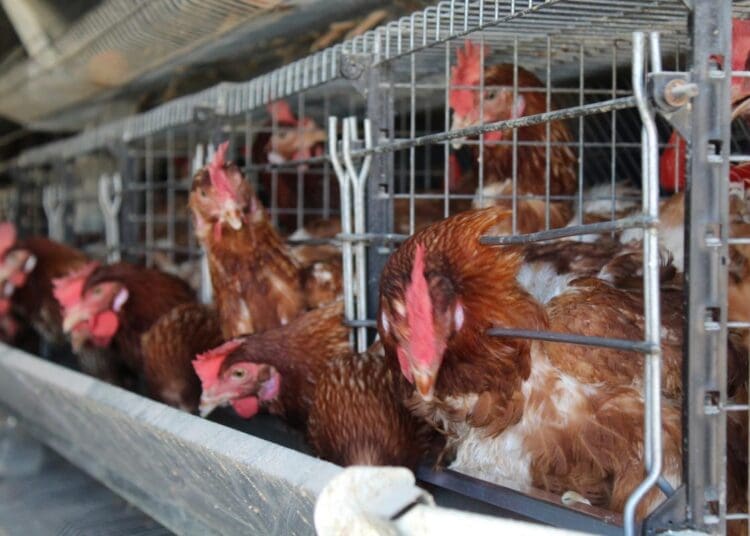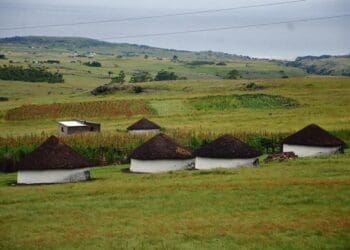Lerato Molefe, who runs a small agricultural supply business in Marikana in the North West, hopes a newly established poultry project that seeks to empower former mineworkers will also improve the fortunes of local businesses.
Health and agriculture MEC Madoda Sambatha, in collaboration with the Mineworkers Development Agency (MDA), launched the Khanyakude North West Ex-Mineworkers Poultry Project in Khuma near Klerksdorp recently.
“This changes everything for us because consistent demand means I can employ two more young people and expand my shop. I have four employees now,” Molefe told Vutivi Business.
The initiative aims to tackle poverty, unemployment and inequality through agribusiness.
“This project is more than farming chickens,” Sambatha told Vutivi Business. “It is about restoring dignity, creating jobs and proving that small businesses can drive economic renewal in communities left behind by mining.”
The poultry venture, which is the first of its kind in Khuma, already boasts hundreds of chicks and feed supplies. There are also training sessions for beneficiaries.
For many former mineworkers, the project represents a chance to earn an income and to build generational wealth.
For small business owners, the project is already opening doors.
Poultry farmer Sipho Moagi from Jouberten in Klerksdorp sees the project as a way to create a support ecosystem among SMEs.
“We can form clusters, share transport costs and negotiate better prices with wholesalers. It’s no longer just about one farmer, it’s about collective growth,” he said.
Fana Moraka, who is the chairperson of the North West Farming Forum that advocates for small-scale farmers, said the poultry project demonstrated how partnerships between government, communities and civil society could work.
“Too often, projects start with enthusiasm but lose momentum. With continuous skills development, access to markets and proper infrastructure, this project can become a model for other provinces,” Moraka said.
The project began supporting participants earlier this year through training on poultry management, biosecurity and bookkeeping.
Some beneficiaries are already supplying eggs and live chickens to local traders, spaza shops and schools.
The MDA has committed to ongoing mentorship and monitoring to ensure that the project grows.
Sambatha stressed that accountability and consistency would keep the wheels turning.
“We cannot afford to launch projects that collapse after ribbon-cutting ceremonies. We will monitor progress, ensure that support reaches the right people and keep creating links between SMMEs and markets.”













